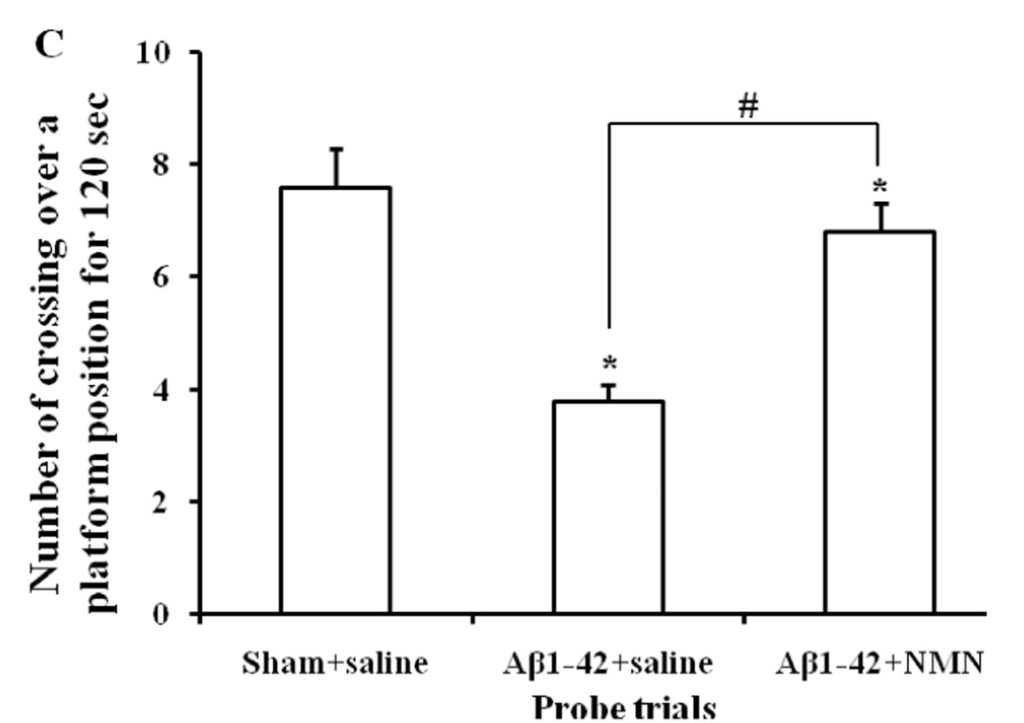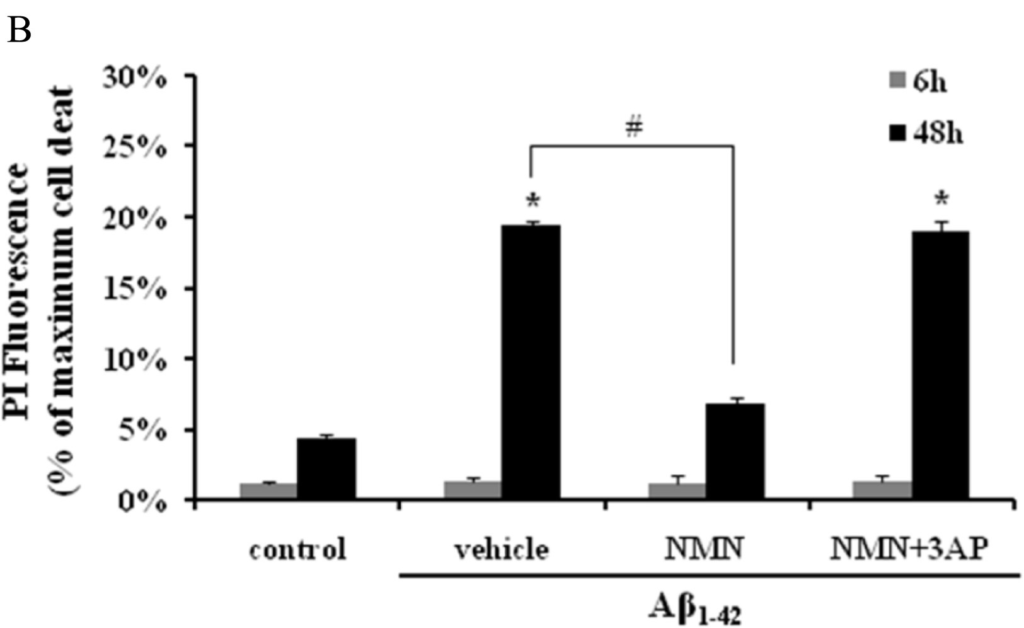NMN Protects the Brain: Preventing Neuronal Death and Improving Cognition
Scientists from Japan and China found NMN improved cognition in a rat model of Alzheimer’s disease with increased neuron survival and metabolism.
In 2060, projections forecast the number of people with Alzheimer’s disease in the US will grow to 13.9 million people, which more than doubles the number in 2018, according to the Centers for Disease Control and Prevention (CDC). Although the world is growing older and the population of Alzheimer’s disease patients is increasing, currently, there is no cure for the illness. A group of scientists from China and Japan wanted to change that.
Evidence Shows NMN Improves Cognition
The team of scientists tested the effects of nicotinamide mononucleotide (NMN) administration in rats with Alzheimer’s disease and found the molecule can protect the nervous system and improve cognition. They published their findings in Brain Research.
Scientists believe that Alzheimer’s disease is caused by the abnormal build-up of proteins in the brain, such as Aβ oligomers, which are repeating molecular units that cause neurodegeneration. Previous studies found that activating nicotinamide adenine dinucleotide (NAD+), a molecule linked to energy metabolism, can decrease Aβ oligomers’ toxicity in Alzheimer’s patients.
The researchers raised NAD+ levels with NMN, a compound that serves as an NAD+ booster, to improve brain energy metabolism and found that the compound could restore cognition in rat models of Alzheimer’s disease. This restoration comes from improved neuronal survival and metabolism, along with reduced cellular stress. The scientists said in the study the results suggest NMN could constitute a promising therapeutic drug for Alzheimer’s disease.
In the study, NMN improved cognition in rats with Aβ oligomers, repeating molecular units found in the brains of Alzheimer’s patients, that are infused into their brains. The scientists also found NMN treatment reduces neuronal cell death in hippocampal slices, specimens taken from the brain. NMN reduced cellular stress in neurons with reducing reactive oxygen species levels, levels of chemically reactive molecules containing oxygen, in disease-affected rat brain.
The scientists tested the effects of NMN administration on the hallmark symptom of Alzheimer’s disease — cognitive decline — and found NMN significantly improved cognitive function in the rat model of Alzheimer’s disease. Using a water maze to measure cognitive abilities, the scientists found NMN-supplemented rats with Alzheimer’s disease performed better cognitively than diseased rats without NMN. These results indicated NMN significantly improved cognitive function in this rat model of Alzheimer’s disease.

After treating the rats with NMN, the team also found a significantly reduced neuronal death in the animals with Alzheimer’s. Following 48 hours of incubation, the diseased rats with NMN treatment showed about a 65% reduction in cell death compared to the animals with Alzheimer’s without NMN treatment.
Besides finding cognitive improvement and a decrease in neuronal death, the researchers also discovered lower levels of cellular stress in the NMN treated Alzheimer’s rat model, indicating NMN’s effects on nervous system protection. However, the protection is reversed when NMN-derived NAD+ are inactivated, confirming the role of brain energy metabolism in Alzheimer’s disease.

This study from 2015 highlighted the potential for NMN as a therapeutic agent in Alzheimer’s disease. “Our study provides a novel aspect of a potential application of NMN in [Alzheimer’s disease] treatment,” stated the scientists in their study.

